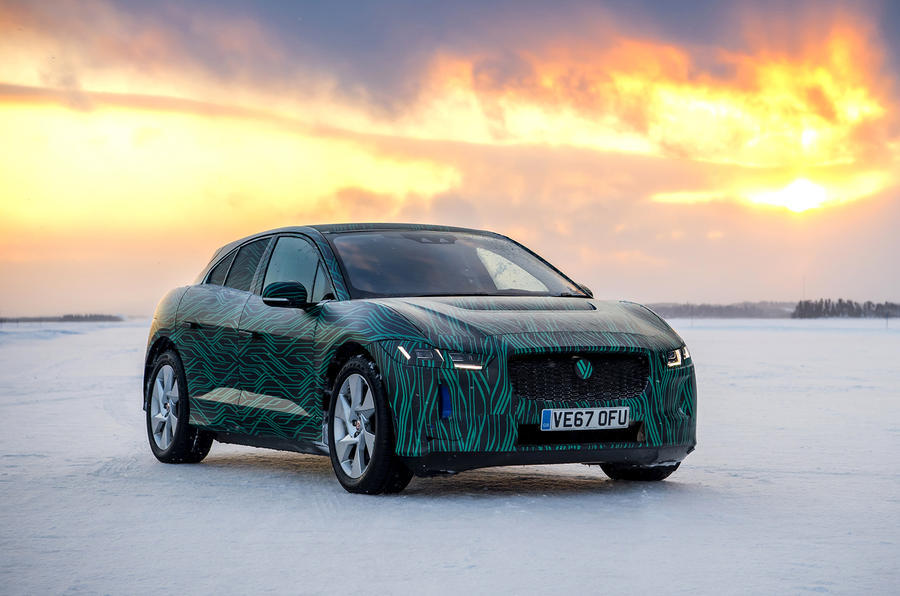British buyers of the Jaguar I-Pace will not be able to achieve the car’s headline 45min 80% rapid charge time because the UK doesn't yet have the infrastructure required to enable it, according to reports.
Since the start of 2018, some European countries including Germany have been receiving chargers with up to 350kW of energy, with 400 due across the continent by 2020. But, reports in the Sunday Times suggest that 100kW chargers, which enable that 45min charge, won’t be installed in the UK until long after the I-Pace arrives this July.
As such, British I-Pace owners will need closer to 90mins to replenish the car's 90kWh batteries to 80% by using a 50kW plug, which is the most common type of charger currently found here. The I-Pace will need about two hours to fully recharge from empty with 50kW charging.
Jaguar I-Pace concept first drive review
Unlike Tesla, which offers 120kW Superchargers to its customers, Jaguar won’t provide its own charging solutions for the I-Pace. Buyers wanting the fastest charge times will therefore have to rely on chargers supplied by other companies.
Chargemaster, one of the UK’s biggest charging point providers, is already working on 150kW chargers for its network but doesn’t expect them to be installed before the end of 2018.
The company’s spokesman told Autocar that the technology is in the “development pipeline” but that there are not currently any affordably priced connectors that can support multiple different car models with 100kW charging.
However, a Jaguar spokesman told Autocar that charging points offering 100Kw or more would be available to the British public by the time the I-Pace goes on sale in the summer, but could not confirm which company would provide such charging points.









Join the debate
Add your comment
It's not easy...
Don't underestimate the electrical infrastructure required to provide, on demand, enough electrical current to power more than a hundred microwave ovens at a single charging point, without making all the lights go dim in the surrounding houses...
How much.....???!!!!
Have you seen the projected list start price for this Car...?, North of £60K......!!!???
3 phase required...and congestion ULEZ zone charging..and utopia
Germany has a 3 phase electricity into every house as far as I know, which means 400 volts are available. As soon as more than 3 people are using this at the same time in the UK on the same substation there are going to be a number of underground electrical fires and explosions I suspect...I also suspect that using electric cars whether hybrid or exclusive in the UK will be the same thing as diesel..that is to say a scientific myth in reality.
405line wrote:
What evidence is this claim of fires and explosion based on?
Even if the grid couldnt cope, although ive heard more credible sources state otherwise, is this a reason not to move to BEVs or a reason to upgrade the (areas of the) network that will need it?
3 phase required...and congestion ULEZ zone charging..and utopia
LOL.. no-one really needs a fast charger at home for overnight charging but i guess if you are loaded then you'll get one.
Suspect fires and explosions
..and I suspect you're making it up as you go along
I suggest that you visit the
I suggest that you visit the website of Podpoint and watch the video in which Eric Fairbairn explains that the situation you describe of multiple users stressing the local grid is easily managed.
I suggest that you visit the
I suggest that you visit the website of Podpoint and watch the video in which Eric Fairbairn explains that the situation you describe of multiple users stressing the local grid is easily managed.
peetee wrote:
Here for anyone interested:
https://pod-point.com/electric-car-news/erik-fairbairn-on-fully-charged
13:30 onwards if you want the exact details, but the whole thing is worth watching.